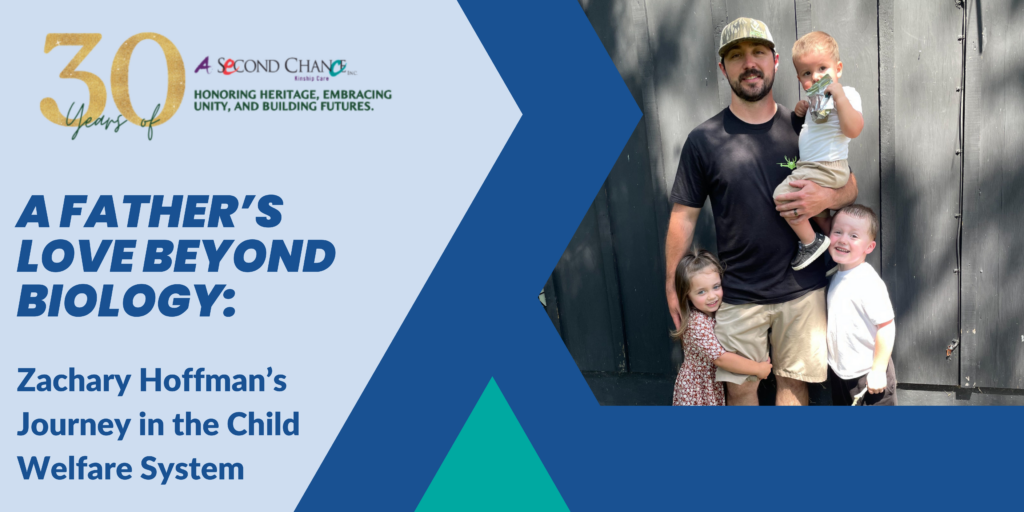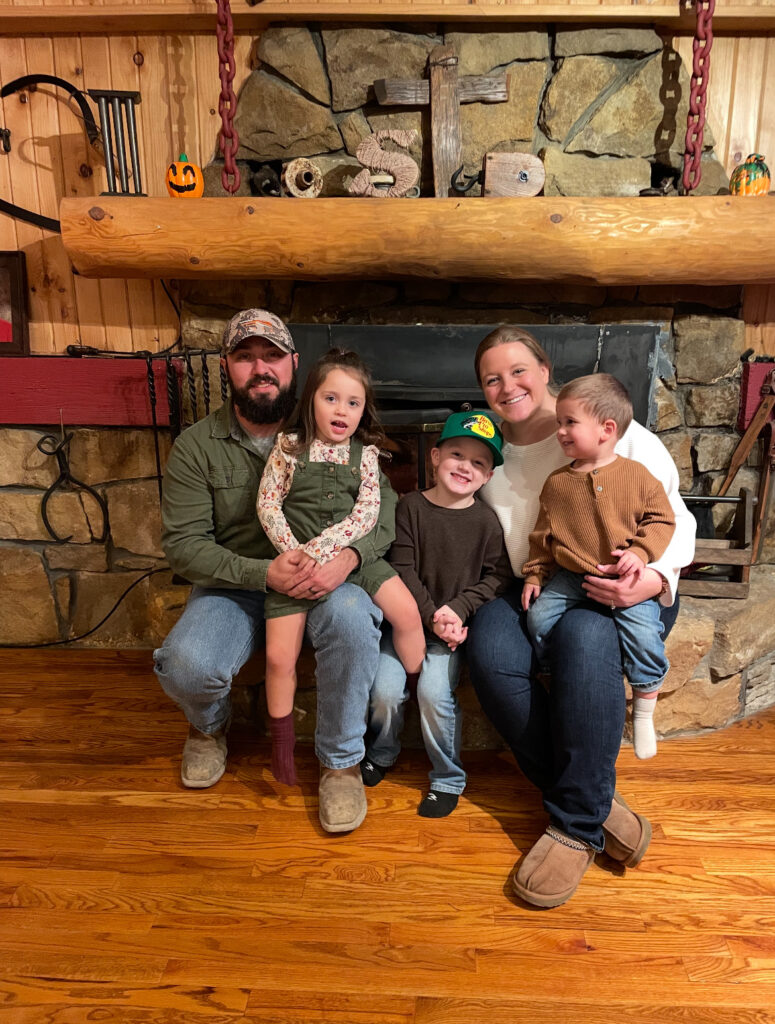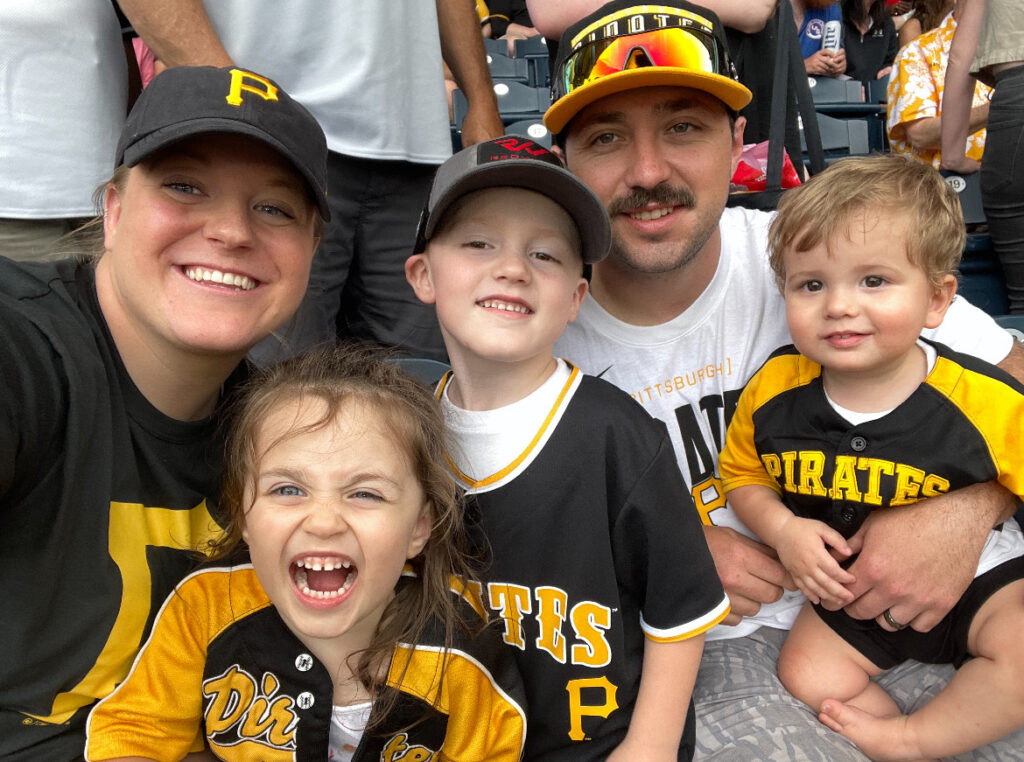Blog
A Father’s Love Beyond Biology: Zachary Hoffman’s Journey in the Child Welfare System
Each month, A Second Chance, Inc. (ASCI) amplifies the voices of our kinship. As an agency committed to establishing a safe, secure, and nurturing environment for children entrusted to the care of relatives or close family friends—known as kinship care—we recognize the importance of delving into the lived experiences of caregivers, birth parents, and children. By doing so, we aim to glean irreplaceable insights that contribute to authentic narratives and inform meaningful programming. Through these dialogues, we strive to foster understanding and create a supportive community for kinship families. This month, we had the privilege of engaging in a conversation with Zachary Hoffman, who graciously shared his experience in the child welfare system.

Zachary Hoffman describes his experience as a father within the child welfare system as both rewarding and rough. “Coming into the situation, I had a vague understanding of how the system truly operated and functioned,” he says. Over time, he realized the depth of the legal complexities, the court involvement, and the misalignment between policy and practical caregiving.
During this journey, he and his wife have cared for a child in their home for over two and a half years, providing stability, safety, and love. “He’s remained in the care of family since birth,” Zachary shares. Through it all, their home has been a place of comfort and consistency, filled with love and hope for the child’s future. As they focused on building that safe space, they also grew more aware of how the system could better align with the shared goal of providing stability and care for every child.

Zachary sees an opportunity for the judicial system to recognize and support the unique commitment that foster and adoptive parents bring to a child’s life. “As foster or adoption parents, you’re just held to a higher standard,” he says. That experience has strengthened his hope for a more balanced system—one that consistently recognizes patterns of care and acts in the best interest of the child.
When it comes to the perception of fathers, Zachary believes they are often overlooked. “Fathers are given the short end of the stick,” he says. As the primary income earner while his wife stays home, he’s experienced firsthand how traditional roles can lead to unequal expectations. “The system looks at fathers in today’s day and age as expendable,” he observes, emphasizing the need for greater inclusion. “Be more interactive with fathers and make them feel like they’re a part of the team.”
Be more interactive with fathers and make them feel like they’re a part of the team.
Zachary Hoffman
This need for inclusion extends beyond perception into the realm of practical support. While resources like A Second Chance, Inc. have offered valuable information, Zachary notes that much of the assistance remains focused on the child. “Support and services are not usually something that’s talked about specifically for fathers.” For him, the solution is clear: more open communication, increased collaboration, and a greater recognition of fathers as vital partners in the caregiving journey.
His caregiving journey began with resilience and a deep commitment to meeting obstacles with compassion and strength. “The child that we’ve gotten into care was born addicted, so he had to detox.” Caring for this child has deepened his emotional growth and strengthened his capacity for compassion, building on his experience with his two biological children. “You just know that he wasn’t loved for probably the first 6 to 8 weeks of his life,” Zachary says. “Those challenges pushed my wife and I to be better parents.”
He emphasizes the impact a father can have. “The presence of a father figure in the family dynamic is just as important as a mother’s influence.”

He points to statistics that show children without fathers are more prone to mental health struggles, behavioral issues, substance abuse, and even suicide. “My wife holds me to a standard just like I hold her to a standard,” he says. “We’re there to help grow these kids socially, mentally, physically, and spiritually.”
My wife holds me to a standard just like I hold her to a standard. We’re there to help grow these kids socially, mentally, physically, and spiritually.
Zachary Hoffman
Zachary sees a systemic preference for mothers, often based on availability. “Fathers do get pushed to the wayside,” he says. Yet, both roles matter. “Be more interactive and ensure them that this is a joint effort.”
For Zachary, the true foundation of caregiving goes beyond formal processes and legal definitions. He is clear that the bond with the child in his care wasn’t created through agencies but through day-to-day parenting. “This relationship was built on late nights, diaper changes, bottle feedings, first steps, first words, and everything in between.” Even though reunification remains the official goal, his feelings haven’t changed. “He is a part of our family.”
Building on this deeply personal connection, he advocates for caregivers to be heard in court. “The mothers and fathers should be heard as witnesses during court hearings, especially ones in a kinship situation like ours.” He believes that families who have cared for a child for more than two years should be offered adoption options, regardless of legal complexities.

Recognizing the importance of both emotional connection and legal recognition, Zachary also offers heartfelt advice to other fathers navigating the system. This advice is grounded in faith. “I would highly suggest having a firm relationship with our Lord and Savior, Jesus Christ.” He believes faith provides peace and strength. “Just doing the right thing by them and showing them to be loving, caring, and allowing them to grow into the person that they were meant to be.”
The Hoffman’s story is a powerful reminder of the profound impact that committed fathers and male caregivers can have within the child welfare system. Zachary’s experience underscores the importance of love, patience, and faith in nurturing a child’s growth. He encourages a greater recognition and inclusion of fathers, not just as caregivers but as vital partners in the healing and development of children in care. His journey illustrates that true family is built through everyday moments of care and connections that transcend legal definitions and speak directly to the heart.
Zachary ends his reflection with a quote that’s stayed with him: “Loving someone else’s child like your own is good for the soul.” For him, that truth defines his journey.